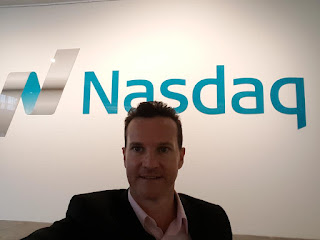To make your start-up a successful venture requires you to develop a set of strategies that you use as a roadmap to ensure your success. To increase your chances of success, it is important to implement a strategic plan for potential business growth.
 Jeremy Harbour, an entrepreneur with 20 years of experience helps entrepreneurs with real tactics for buying, fixing, and selling businesses. He suggests young entrepreneurs to have a future-oriented vision for their business.
Jeremy Harbour, an entrepreneur with 20 years of experience helps entrepreneurs with real tactics for buying, fixing, and selling businesses. He suggests young entrepreneurs to have a future-oriented vision for their business.
According to the 38-year old businessman, “The main reason to develop a strategic plan for business growth is that you have some vague notions about your business objectives and what YOU want to achieve for yourself from your business. So, a strategic plan will help you achieve those personal goals you want for the next 5 to 10 years.”
The goal of strategic planning is to develop an action plan with short, medium and long-term milestones that are measurable. It takes into account all business areas including product/service development, staffing & team management needs, sales & marketing, financial & accounting control/operations which are effective for any business to lead the path of growth.
Jeremy Harbour has just launched a new trade association, The Business Recovery Forum (BRF), a not-for-profit association which provides one-to-one guidance and insight to businesses which fail to reap the fruits of success or fail to realize their market potential.
 Jeremy Harbour, an entrepreneur with 20 years of experience helps entrepreneurs with real tactics for buying, fixing, and selling businesses. He suggests young entrepreneurs to have a future-oriented vision for their business.
Jeremy Harbour, an entrepreneur with 20 years of experience helps entrepreneurs with real tactics for buying, fixing, and selling businesses. He suggests young entrepreneurs to have a future-oriented vision for their business.According to the 38-year old businessman, “The main reason to develop a strategic plan for business growth is that you have some vague notions about your business objectives and what YOU want to achieve for yourself from your business. So, a strategic plan will help you achieve those personal goals you want for the next 5 to 10 years.”
The goal of strategic planning is to develop an action plan with short, medium and long-term milestones that are measurable. It takes into account all business areas including product/service development, staffing & team management needs, sales & marketing, financial & accounting control/operations which are effective for any business to lead the path of growth.
Jeremy Harbour has just launched a new trade association, The Business Recovery Forum (BRF), a not-for-profit association which provides one-to-one guidance and insight to businesses which fail to reap the fruits of success or fail to realize their market potential.

